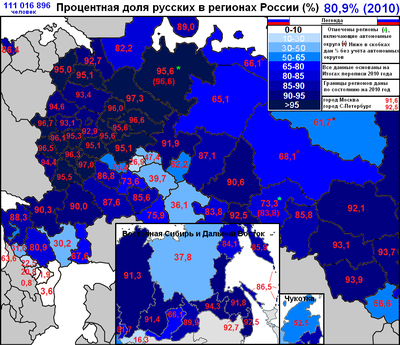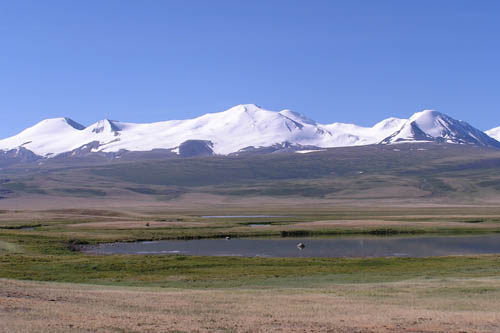- Reaction score
- 4,341
- Points
- 1,160
E.R. Campbell said:Interesting but, I think, because it is designed to convince Americans to change governments, not because it presents a credible case for a Russian turn around.
I remain convinced that Russia is a failing state, not a potential leader of even a rival for any of the America, China or India.
Here is an interesting take on Russia and Putin and neo-Eurasianism in an article that is reproduced under the Fair Dealing provisions of the Copyright Act from the Globe and Mail:
http://www.theglobeandmail.com/globe-debate/has-putin-bought-into-these-dangerous-ideas/article17610287/#dashboard/follows/

Has Putin bought into these dangerous ideas?
DOUG SAUNDERS
The Globe and Mail
Published Saturday, Mar. 22 2014
On Tuesday, Vladimir Putin stood before the Duma and delivered a speech that changed the history of his country, and possibly of the world. The speech opened by declaring that the representatives of Crimea seated before him were “citizens of Russia, residents of Crimea and Sevastopol,” and ended by making this a fact, by signing Crimea into the Russian Federation, and making the world’s largest country slightly larger.
During the intervening hour he uttered 5,000 words that will be studied carefully. They changed the world’s question from “What is Mr. Putin thinking?” to “Does he really believe what he says?” If his language is taken at face value, Mr. Putin has become an ethnic-nationalist menace to his people and region, a Slobodan Milosevic with better weapons. If he is simply drawing on the language of extremism for political gain, then a different response is needed.
Speakers of Russian immediately noticed something different.
As Kimberly Marten, a Russia scholar at Columbia University noted, for the first time Mr. Putin did not refer to Russians as “Rossisskii” – citizens of Russia – but as “Russkii,” ethnic Russians. “Crimea is primordial ‘Russkaya’ land, and Sevastapol is a ‘Russkii’ city,” he said. And he described the Orthodox Church as the institution that “predetermined the overall basis of the culture, civilization and human values that unite the peoples of Russia, Ukraine and Belarus.”
His speech’s blend of Orthodox Christian ethnic-Russian nationalism with conspiratorial anti-Americanism is a major tip of the hat to the movement known as neo-Eurasianism, an ultra-nationalist political philosophy whose explosive language has become either Mr. Putin’s new guiding belief or, more likely, an important rhetorical tool in his political arsenal.
The central figure in this movement is the bearded philosopher Alexander Dugin, who has played an on-and-off advisory role in Mr. Putin’s political party for 14 years and who has frequently spoken to the media on behalf of Kremlin interests during the Ukraine crisis.
In the years after communism collapsed, Mr. Dugin and other activists revived Eurasianism, a pre-communist movement that saw the Russians as a fully independent third “civilization” between East and West. To this he added more Orthodox mysticism, the ideas of Martin Heidegger and of anti-globalization thinkers such as Antonio Negri and Michael Hardt, a sprinkling of gender studies and critical theory, and came up with a movement whose declared enemies are liberal democracy, modernism and the Enlightenment, which he sees not as ideas with their own proud and independent history in Russia (which they are) but as tainted Western imports.
In 1992, months after the Soviet Union collapsed, Mr. Dugin wrote proudly that “the Endkampf, the final struggle will burst upon us very soon … the decisive hour is already at hand, the hour of Eurasia. The great war of the continents is approaching.”
It is unlikely (we can hope) that these words are what Mr. Putin has had in mind when his speeches have referred to neo-Eurasian ideas. After all, the President showed little sign of being an ethnic nationalist or Eurasianist during his first two terms in office, or even the beginning of his third; this new language has emerged in recent years, after Russia’s liberal middle class revolted against him and he sought a new political base.
Rather, he seems to be drawing from Mr. Dugin’s 2009 manifesto The Fourth Political Theory, which became a sensation in Moscow circles. The other three political theories to which the title alludes are liberalism, fascism and communism; the first, (economic and political liberalism, including liberal democracy), is to be opposed by all means possible. Fascists and communists, Islamists and “defenders of the spiritual traditions of the pre-modern West” are described as crucial allies in this struggle. He refers to his own ideology, the fourth, not just as neo-Eurasianism but frequently as “National Bolshevism” (a reference to National Socialism – he is an admirer of the Nazi legacy). He describes his ideology as “socialism without materialism, atheism, progressivism and modernism.”
Does Vladimir Putin really believe all of this? It’s unlikely, given his lack of prior interest in such extremes of ethnic nationalism. But he is clearly using this movement, and language, as a tactic with which to cement his power, as a gaudy ornament to his self-aggrandizement. For now, this is how we should see the move on Crimea: As an easily grabbed jewel in an autocrat’s crown, not as the launch of a continental bid. We are right to isolate and shun Mr. Putin as long as he pays favour to such dangerous beliefs; he must be aware of their darkest implications.
Neo-Eurasianism is a strange doctrine that holds that Russia is special and has a special place between liberal, Western Europe and conservative Sinic Asia. It is, in my opinion: fascist and foolish.
Russia is, simply, backwards.
Despite Borodin and Tchaikovsky, Sholokhov and Solzhenitsyn, Abrikosov and Ginzburg and Ilyushin and Korolev, Russia remains an essentially peasant society stuck, not positioned, between a dynamic, forward looking Europe and an equally dynamic, albeit often inscrutable, Asia.
I think Aleksandr Dugin is charismatic but, fundamentally wrong. He has said, in The Basics of Geopolitics (1997) that: “In principle, Eurasia and our space, the heartland Russia, remain the staging area of a new anti-bourgeois, anti-American revolution. ... The new Eurasian empire will be constructed on the fundamental principle of the common enemy: the rejection of Atlanticism, strategic control of the USA, and the refusal to allow liberal values to dominate us. This common civilizational impulse will be the basis of a political and strategic union.” He promotes an alliance between Eurasia and the Arabs. I think Dugin sees, clearly and correctly, that Russia is surrounded and will, sooner or later, will be chewed up, piece by piece, by the




